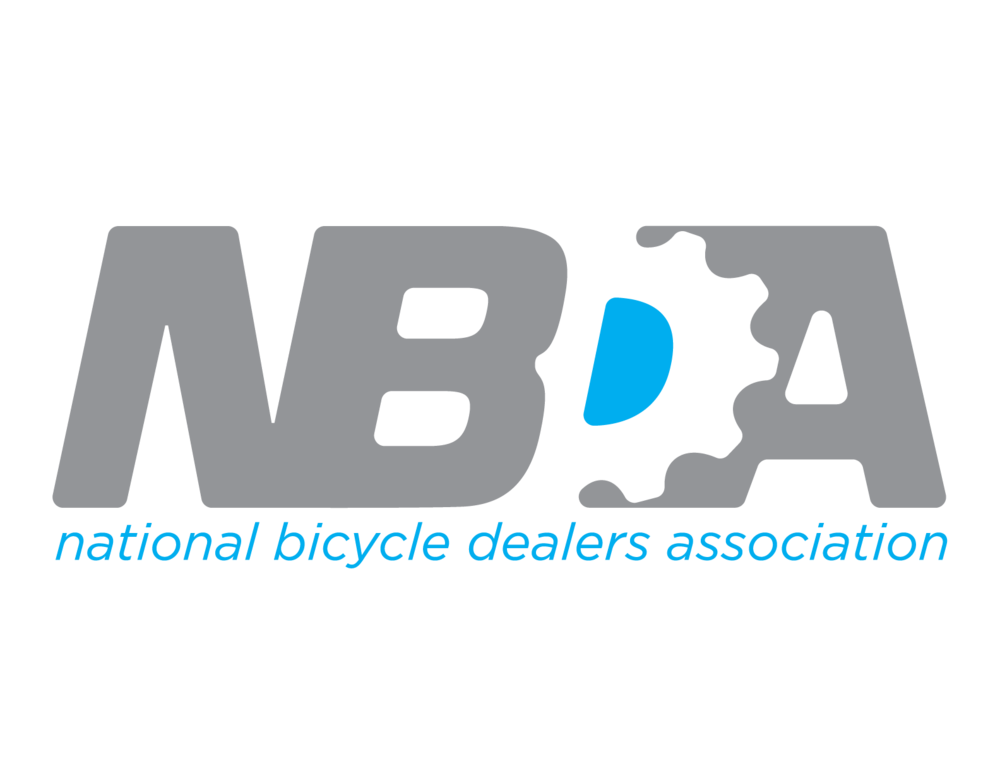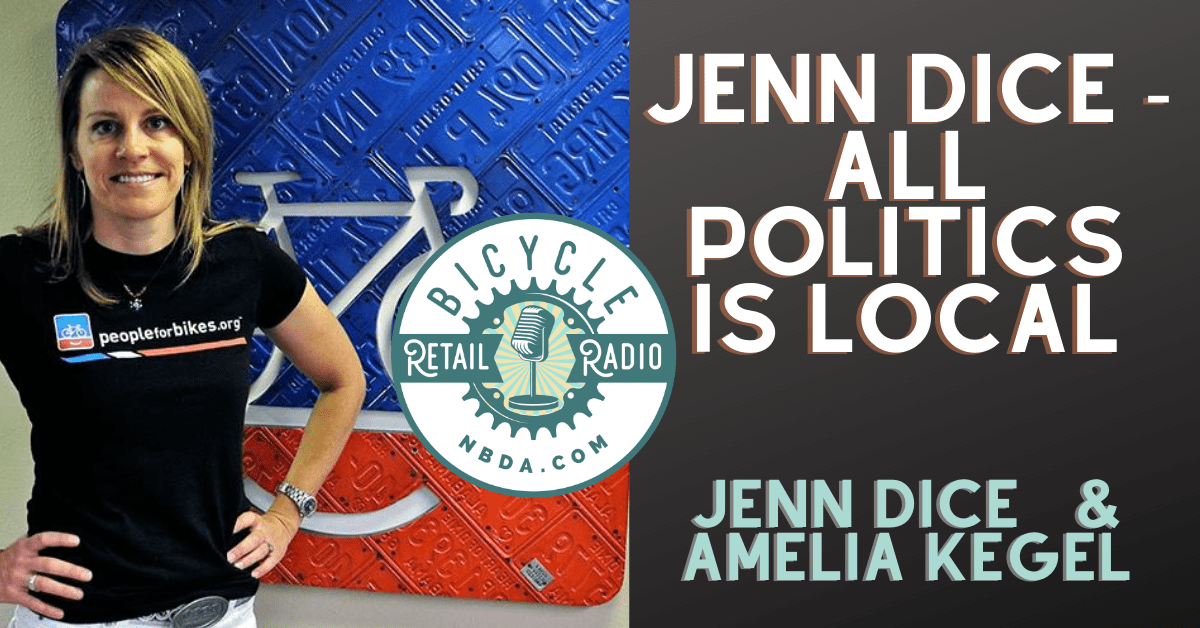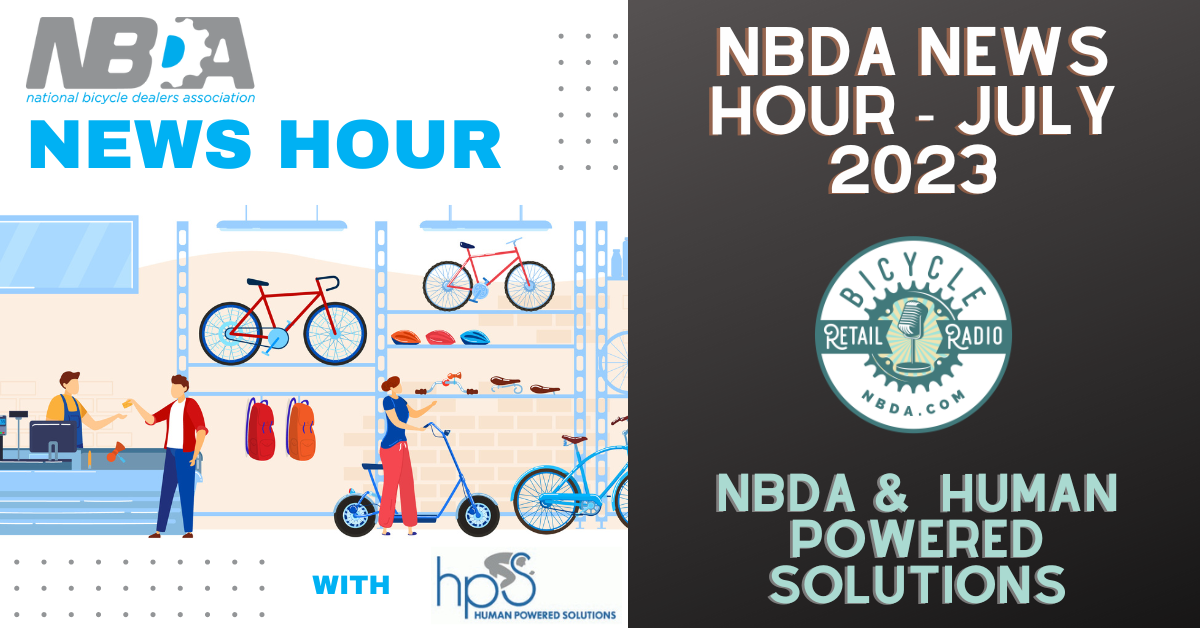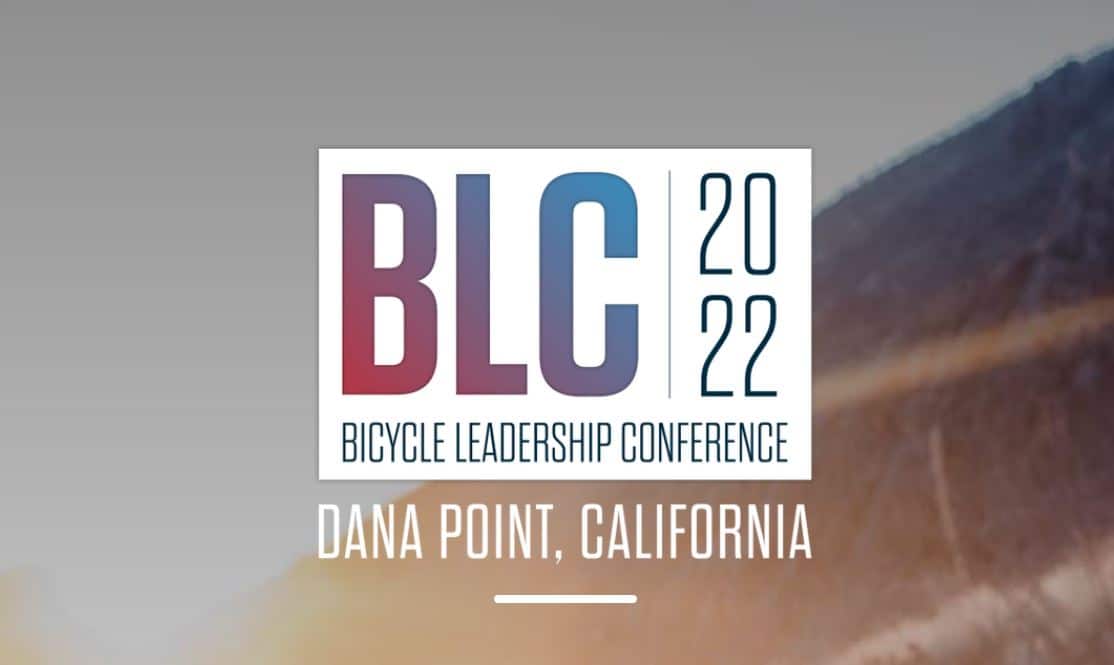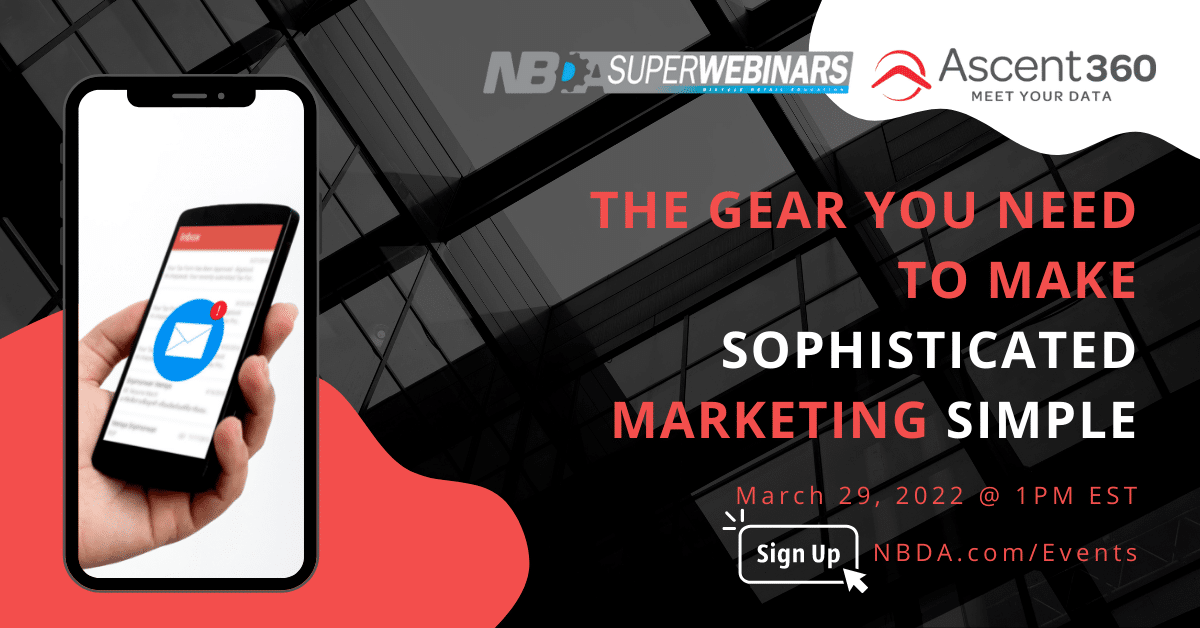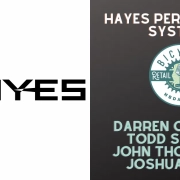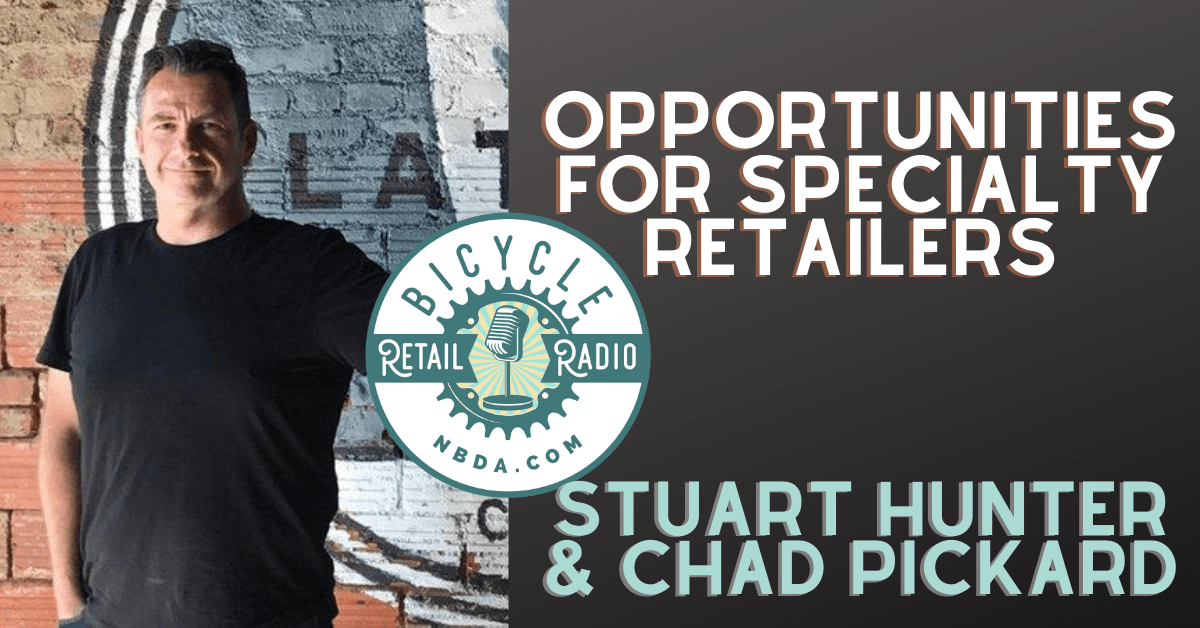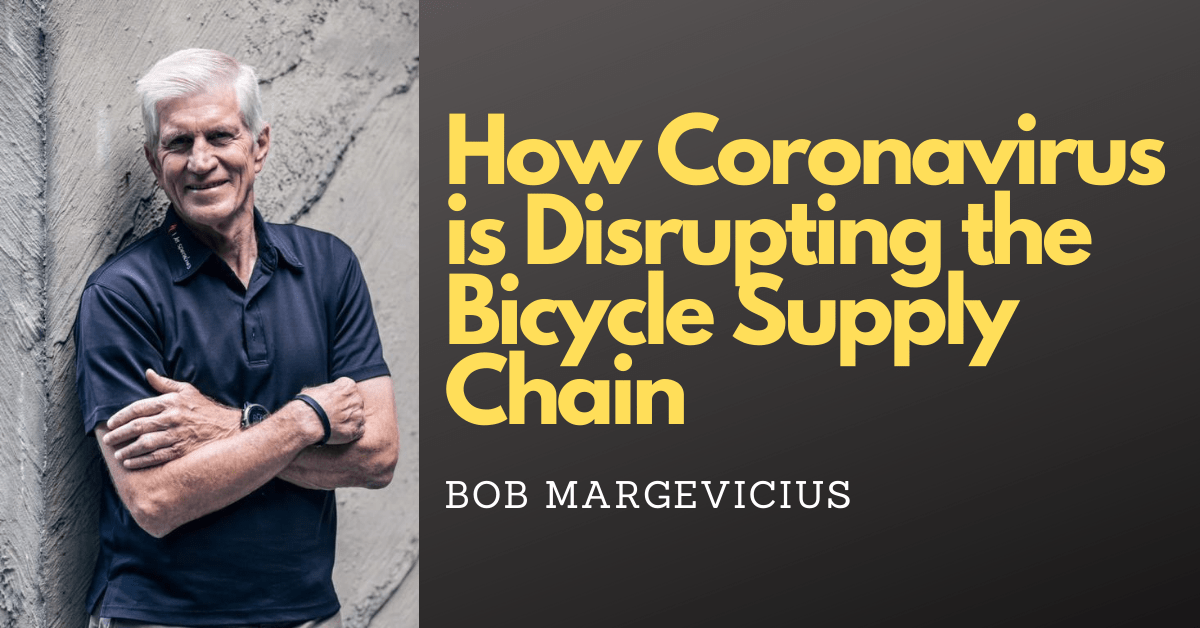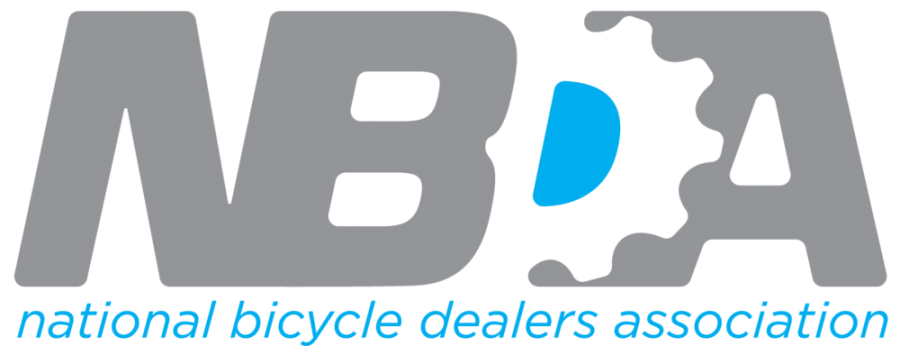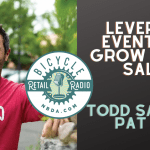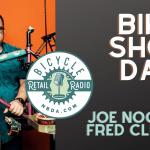Jenn Dice – All Politics is Local
[fusion_builder_container hundred_percent=”no” equal_height_columns=”no” menu_anchor=”” hide_on_mobile=”small-visibility,medium-visibility,large-visibility” class=”” id=”” background_color=”” background_image=”” background_position=”center center” background_repeat=”no-repeat” fade=”no” background_parallax=”none” parallax_speed=”0.3″ video_mp4=”” video_webm=”” video_ogv=”” video_url=”” video_aspect_ratio=”16:9″ video_loop=”yes” video_mute=”yes” overlay_color=”” video_preview_image=”” border_color=”” border_style=”solid” padding_top=”” padding_bottom=”” padding_left=”” padding_right=”” type=”legacy”][fusion_builder_row][fusion_builder_column type=”1_1″ layout=”1_1″ align_self=”auto” content_layout=”column” align_content=”flex-start” content_wrap=”wrap” spacing=”” center_content=”no” link=”” target=”_self” min_height=”” hide_on_mobile=”small-visibility,medium-visibility,large-visibility” sticky_display=”normal,sticky” class=”” id=”” type_medium=”” type_small=”” order_medium=”0″ order_small=”0″ dimension_spacing_medium=”” dimension_spacing_small=”” dimension_spacing=”” dimension_margin_medium=”” dimension_margin_small=”” margin_top=”” margin_bottom=”” padding_medium=”” padding_small=”” padding_top=”” padding_right=”” padding_bottom=”” padding_left=”” hover_type=”none” border_sizes=”” border_color=”” border_style=”solid” border_radius=”” box_shadow=”no” dimension_box_shadow=”” box_shadow_blur=”0″ box_shadow_spread=”0″ box_shadow_color=”” box_shadow_style=”” background_type=”single” gradient_start_color=”” gradient_end_color=”” gradient_start_position=”0″ gradient_end_position=”100″ gradient_type=”linear” radial_direction=”center center” linear_angle=”180″ background_color=”” background_image=”” background_image_id=”” background_position=”left top” background_repeat=”no-repeat” background_blend_mode=”none” animation_type=”” animation_direction=”left” animation_speed=”0.3″ animation_offset=”” filter_type=”regular” filter_hue=”0″ filter_saturation=”100″ filter_brightness=”100″ filter_contrast=”100″ filter_invert=”0″ filter_sepia=”0″ filter_opacity=”100″ filter_blur=”0″ filter_hue_hover=”0″ filter_saturation_hover=”100″ filter_brightness_hover=”100″ filter_contrast_hover=”100″ filter_invert_hover=”0″ filter_sepia_hover=”0″ filter_opacity_hover=”100″ filter_blur_hover=”0″ last=”true” border_position=”all” first=”true” type=”1_1″][fusion_imageframe image_id=”21619|medium” max_width=”” sticky_max_width=”” style_type=”” blur=”” stylecolor=”” hover_type=”none” bordersize=”” bordercolor=”” borderradius=”” align_medium=”none” align_small=”none” align=”center” margin_top=”” margin_right=”” margin_bottom=”” margin_left=”” lightbox=”no” gallery_id=”” lightbox_image=”” lightbox_image_id=”” alt=”Photo of Jenn Dice” link=”” linktarget=”_self” hide_on_mobile=”small-visibility,medium-visibility,large-visibility” sticky_display=”normal,sticky” class=”” id=”” animation_type=”” animation_direction=”left” animation_speed=”0.3″ animation_offset=”” filter_hue=”0″ filter_saturation=”100″ filter_brightness=”100″ filter_contrast=”100″ filter_invert=”0″ filter_sepia=”0″ filter_opacity=”100″ filter_blur=”0″ filter_hue_hover=”0″ filter_saturation_hover=”100″ filter_brightness_hover=”100″ filter_contrast_hover=”100″ filter_invert_hover=”0″ filter_sepia_hover=”0″ filter_opacity_hover=”100″ filter_blur_hover=”0″]https://nbda.com/wp-content/uploads/2020/08/Bicycle-retail-radio-10-900×471.png[/fusion_imageframe][fusion_code]PGRpdiBpZD0iYnV6enNwcm91dC1wbGF5ZXItMjE4MTY2OCI+PC9kaXY+CjxzY3JpcHQgc3JjPSJodHRwczovL3d3dy5idXp6c3Byb3V0LmNvbS80OTYwOTMvMjE4MTY2OC1pbmR1c3RyeS1pbnRlcnZpZXctamVubi1kaWNlLWFsbC1wb2xpdGljcy1pcy1sb2NhbC5qcz9jb250YWluZXJfaWQ9YnV6enNwcm91dC1wbGF5ZXItMjE4MTY2OCZwbGF5ZXI9c21hbGwiIHR5cGU9InRleHQvamF2YXNjcmlwdCIgY2hhcnNldD0idXRmLTgiPjwvc2NyaXB0Pg==[/fusion_code][/fusion_builder_column][fusion_builder_column type=”1_1″ layout=”1_1″ background_position=”left top” background_color=”” border_color=”” border_style=”solid” border_position=”all” spacing=”yes” background_image=”” background_repeat=”no-repeat” padding_top=”” padding_right=”” padding_bottom=”” padding_left=”” margin_top=”0px” margin_bottom=”0px” class=”” id=”” animation_type=”” animation_speed=”0.3″ animation_direction=”left” hide_on_mobile=”small-visibility,medium-visibility,large-visibility” center_content=”no” last=”true” min_height=”” hover_type=”none” link=”” border_sizes_top=”” border_sizes_bottom=”” border_sizes_left=”” border_sizes_right=”” first=”true” type=”1_1″][fusion_text]
Jenn Dice – All Politics is Local: In this episode, Amelia Kegel, NBDA Board Member and Co-Owner of Wheel & Sprocket talks with Jenn Dice, COO of People for Bikes. Listen in to two passionate advocates for the industry to share their insights on bike safety, local and national advocacy, why bike shops should get involved, and how you can help at any and all levels.
About Jenn Dice
As the leader of People for Bikes, Jenn brings unmatched energy and focus to her work each and every day. She is bold and draws on nearly two decades of diverse professional experience and a vast bike industry and advocacy network. Jenn’s love of bicycling is the rocket fuel that powers her exceptional efforts to boost all types of riding and all bike businesses. Jenn joined the organization in 2013 after more than a decade as a leader of IMBA.
Please enjoy listening to Jenn Dice – All Politics is Local
Support the show (https://nbda.com/articles/donation-form-pg511.htm#!form/Donate)
[/fusion_text][/fusion_builder_column][/fusion_builder_row][/fusion_builder_container][fusion_builder_container type=”flex” hundred_percent=”no” hundred_percent_height=”no” min_height=”” hundred_percent_height_scroll=”no” align_content=”stretch” flex_align_items=”flex-start” flex_justify_content=”flex-start” flex_column_spacing=”” hundred_percent_height_center_content=”yes” equal_height_columns=”no” container_tag=”div” menu_anchor=”” hide_on_mobile=”small-visibility,medium-visibility,large-visibility” status=”published” publish_date=”” class=”” id=”” link_color=”” link_hover_color=”” border_sizes=”” border_sizes_top=”” border_sizes_right=”” border_sizes_bottom=”” border_sizes_left=”” border_color=”” border_style=”solid” spacing_medium=”” margin_top_medium=”” margin_bottom_medium=”” spacing_small=”” margin_top_small=”” margin_bottom_small=”” margin_top=”” margin_bottom=”” padding_dimensions_medium=”” padding_top_medium=”” padding_right_medium=”” padding_bottom_medium=”” padding_left_medium=”” padding_dimensions_small=”” padding_top_small=”” padding_right_small=”” padding_bottom_small=”” padding_left_small=”” padding_top=”” padding_right=”” padding_bottom=”” padding_left=”” box_shadow=”no” box_shadow_vertical=”” box_shadow_horizontal=”” box_shadow_blur=”0″ box_shadow_spread=”0″ box_shadow_color=”” box_shadow_style=”” z_index=”” overflow=”” gradient_start_color=”” gradient_end_color=”” gradient_start_position=”0″ gradient_end_position=”100″ gradient_type=”linear” radial_direction=”center center” linear_angle=”180″ background_color=”” background_image=”” background_position=”center center” background_repeat=”no-repeat” fade=”no” background_parallax=”none” enable_mobile=”no” parallax_speed=”0.3″ background_blend_mode=”none” video_mp4=”” video_webm=”” video_ogv=”” video_url=”” video_aspect_ratio=”16:9″ video_loop=”yes” video_mute=”yes” video_preview_image=”” absolute=”off” absolute_devices=”small,medium,large” sticky=”off” sticky_devices=”small-visibility,medium-visibility,large-visibility” sticky_background_color=”” sticky_height=”” sticky_offset=”” sticky_transition_offset=”0″ scroll_offset=”0″ animation_type=”” animation_direction=”left” animation_speed=”0.3″ animation_offset=”” filter_hue=”0″ filter_saturation=”100″ filter_brightness=”100″ filter_contrast=”100″ filter_invert=”0″ filter_sepia=”0″ filter_opacity=”100″ filter_blur=”0″ filter_hue_hover=”0″ filter_saturation_hover=”100″ filter_brightness_hover=”100″ filter_contrast_hover=”100″ filter_invert_hover=”0″ filter_sepia_hover=”0″ filter_opacity_hover=”100″ filter_blur_hover=”0″][fusion_builder_row][fusion_builder_column type=”1_1″ layout=”1_1″ align_self=”auto” content_layout=”column” align_content=”flex-start” content_wrap=”wrap” spacing=”” center_content=”no” link=”” target=”_self” min_height=”” hide_on_mobile=”small-visibility,medium-visibility,large-visibility” sticky_display=”normal,sticky” class=”” id=”” type_medium=”” type_small=”” order_medium=”0″ order_small=”0″ dimension_spacing_medium=”” dimension_spacing_small=”” dimension_spacing=”” dimension_margin_medium=”” dimension_margin_small=”” margin_top=”” margin_bottom=”” padding_medium=”” padding_small=”” padding_top=”” padding_right=”” padding_bottom=”” padding_left=”” hover_type=”none” border_sizes=”” border_color=”” border_style=”solid” border_radius=”” box_shadow=”no” dimension_box_shadow=”” box_shadow_blur=”0″ box_shadow_spread=”0″ box_shadow_color=”” box_shadow_style=”” background_type=”single” gradient_start_color=”” gradient_end_color=”” gradient_start_position=”0″ gradient_end_position=”100″ gradient_type=”linear” radial_direction=”center center” linear_angle=”180″ background_color=”” background_image=”” background_image_id=”” background_position=”left top” background_repeat=”no-repeat” background_blend_mode=”none” animation_type=”” animation_direction=”left” animation_speed=”0.3″ animation_offset=”” filter_type=”regular” filter_hue=”0″ filter_saturation=”100″ filter_brightness=”100″ filter_contrast=”100″ filter_invert=”0″ filter_sepia=”0″ filter_opacity=”100″ filter_blur=”0″ filter_hue_hover=”0″ filter_saturation_hover=”100″ filter_brightness_hover=”100″ filter_contrast_hover=”100″ filter_invert_hover=”0″ filter_sepia_hover=”0″ filter_opacity_hover=”100″ filter_blur_hover=”0″ last=”true” border_position=”all” type=”1_1″ first=”true”][fusion_accordion type=”” boxed_mode=”” border_size=”1″ border_color=”” background_color=”” hover_color=”” divider_line=”” title_font_size=”20px” icon_size=”” icon_color=”” icon_boxed_mode=”” icon_box_color=”” icon_alignment=”” toggle_hover_accent_color=”” hide_on_mobile=”small-visibility,medium-visibility,large-visibility” class=”” id=””][fusion_toggle title=”Episode Transcript” open=”no” class=”” id=””]
Jenn Dice & Amelia Kegel
Fri, 8/21 10:08AM • 44:09
SUMMARY KEYWORDS
bike, bike shop, people, ride, city, infrastructure, community, network, bicycle, mountain bike, years, important, places, projects, bike ride, retailers, talking, bike lanes, industry, helping
SPEAKERS
Jenn Dice, Rod Judd, Amelia Kegel, Kent Cranford
Rod Judd 00:10
You are listening to Bicycle Retail Radio brought to you by the National Bicycle Dealers Association.
Amelia Kegel 00:17
Hello, my name is Amelia Kegel and I’m here with bicycle retail radio on by the NBDA. I am the owner of Wheel & Sprocket here in Milwaukee, Wisconsin. And my brother Noel. We are second-generation bike shop owners. I’m also a board member of the NBDA. I have the intense pleasure today of interviewing Jenn Dice from people for bikes on a segment on how to be an effective bike advocate and why it’s more important now than ever before. So without further ado, welcome, Jenn.
Jenn Dice 00:46
Thank you, Amelia. Great to be here.
Amelia Kegel 00:48
So before we get into the thick of it, I was just trying to thank Jen, the first time that I met you, I think was actually in Las Vegas at a bike pack conference. And I just remember seeing this like this poised lady talking about some super important issues and just lighting up the room. And I think from the second I saw you talk, I was just like, Who is this lady? And how do I be more like her?
Jenn Dice 01:11
You are so nice. Thank you very much every year at Bike PAC You’re an amazing dad, Chris, and you and your brother No, and you would bring a pack of folks from Wheel & Sprocket. I love that every year your dad would come, he would max out, he understood the importance of the political action committee, and he would just be this, bring everybody else along with him so that they could hear more about exploring and people for bikes work in Washington, DC. And Chris was a longtime board member, and it’s an honor and pleasure to work with him and get to know you all. It was always super fun. And you know, today we’re gonna dive into a couple of topics. We have some things to ask, but really at the beginning of things here, I just want to start off Jenn. Hey, how are you? Let’s get started with a little bit of your background and what got you into this whole Career focus. A great question. I’m great. Thanks for asking. I actually grew up in the Midwest, I grew up in South Dakota. I went to an undergraduate there. And in college, I had a mountain bike and I just absolutely fell in love with riding my mountain bike and all these dirt roads around South Dakota. And then I went to Kansas for grad school, same thing, mountain bike, all these dirt roads. absolutely loved it. And then after grad school, I moved to Colorado. And in Colorado, I lived in Summit County and my first you know, Colorado boyfriend got me into mountain biking and taking that mountain bike out on true singletrack. And I just fell in love with mountain biking and my Colorado lifestyle. And you know, I’ve been here ever since. And the guy really lucky that my favorite hobby of mountain biking turned into my profession. Because I was always in public policy. I was a lobbyist, I worked a lot of state legislatures. And one day I met Ken Blumenthal, and he told me all about IMBA, the International Mountain Bike Association and we totally hit it off and I went to work with him. And so I’m getting to falling in love with bikes on the personal side between mountain biking, and then turning it into my personal profession has been really a great ride.
Amelia Kegel 03:11
So, Jenn, you started with the bike industry and kind of a cool way. So you got to be able to ride bikes and then actually start going out there and advocating for them. But really, how to do people for bike start
Jenn Dice 03:21
People for Bikes started in 1999, it’s about a 20-year-old organization, and, you know, sort of 10 of our forefathers, your dad being one of them. They came together and they decided to grow participation and to grow the pie for all of the bike industry. They were going to set aside their differences set aside competition, and say, Okay, we’re going to form an industry association to make sure that we get more funding and access for bikes. And so they came up with their first set of bylaws and they decided to tax themselves in air quotes, you know, the tax themselves rate for us sales, so that all of the bike industry would pay into an industry association to make sure that Congress continued to dry, a really big check for the bike. And then ultimately, they worked on public policy, bike access funding of all stripes. And so 20 years later, a couple of years ago, we changed our name from bikes blonde to people for bikes, we have a consumer-facing campaign of 1.3 million Americans United for more and better riding. So we decided to change our name from Bikes Belong to People for Bikes, and it’s been great. That’s an awesome history lesson. It must have been so hard, right? Everyone’s coming from all their different competitive fields. Was it really hard to get everyone on the same page? Or what kind of fun did that or feel that? If Tim were on this podcast, he could answer that question because it was way before my time, I have to admit. But I think that I mean, truly people recognized that there was a need instead of just working on your bike random just selling your bike that they had this larger vision for what bicycling in America could be. And in order for that to happen, they needed to come together and truly set competition aside not to talk about sales, talk about changing America, through infrastructure, better bike lanes better singletrack more bike parks, and really to do all of that they needed a lot more funding from Congress and from the States. And so I’m sure there were contentious moments through the years as they sort of formed and evolved. And I know that several years into forming bikes blog, that’s when they formed the political action committee Bike PAC and really got a lot more active in Washington, DC and it took them to another level. And then actually now it’s another big moment in our history. July 1, we emerged with the bicycle products, the Players Association. So all of those leaders from the bicycle from BPSA are now even more part of our organization and we’ve been working really closely with them for the last three years, on dozens of different issues, to grow the bike industry to grow, bike participation, etc. Well, we decided to merge and July one, it was effective. And so now we’re a much stronger, bigger organization. So that’s another point in our history in his 20-year history.
Amelia Kegel 06:19
I mean, that’s super exciting. You know, a lot of this stuff is a little bit beyond, you know, here we are a bike shop owners and we’re really trying to make a positive difference. And sometimes it feels like you know, we’re a little lonely and like in our communities, it’s kind of hard to bang that drum and tell people this is important. But I really do remember hearing the early days of the Bikes Belong and People for Bikes conversation. It really is if we come together and we can have a common goal and really put some main objectives for the year, we can get some real things accomplished. So I think it’s extremely exciting. You know, I think a lot of bike shops and a lot of bike shop owners are aware of people for bikes. I think it’s really interesting and it’s important to share this history. It really just happened with a few folks that came together as all something bigger in the room. So I think that’s super. Yeah, well, thanks for sharing.
Jenn Dice 07:07
Sure, well said it really you’ve heard the saying that all politics is local. And it’s really true. So many bike shops have great stories of a local bike path or bike park or a protected bike lane that they helped put into their city or is near their bike shop that is directly responsible for their sales, and why they’re able to grow cycling in their particular communities. We do a lot with local bike shops, whether it’s calling their Mayor or showing up at their state capitol or bringing them to Washington, DC to make sure that their member of congress knows that there are many votes that impact small business owners back at home and so buy shops have the ability to make a big difference, both locally and nationally through MBDA for people for bikes, and really just caring about their local bike infrastructure because it directly impacts their passion for bikes and their sales for bikes. For sure, and really kind of take a look at the national level to boil the ocean and make America a better place for bikes. That’s a hard task that really seems impossible. But if we all have a way and an effective way to kind of present ourselves, and then have a common message, it just seems a little bit smarter. Hey, if we do this at the same time, and a lot of different places, it really is amazing the result. So just a huge plug for people for bikes for helping us out there.
Amelia Kegel 08:27
A lot of people are always interested in ways that you know, how can we help grow the pie? And I heard a little bit earlier you were saying, you know, we kind of pinpoint ourselves against other countries, and there are ways to do things appropriately. But what do you think Jen? Like, what do you think really sets us apart from Europe? And the reason what sets us so differently? And what’s so different about Europe with the way that they’re creating bike infrastructure? Do you see that potential here in the United States?
Jenn Dice 08:52
Definitely, and so what Europe does differently than the US is that they really prioritize bike infrastructure over time. The last 30 to 40 years and 30 to 40 years at first blush sounds like a long time, but it really isn’t. that we have a lot of communities that are already down that path significantly towards building a connected bike network. We know that people are not going to ride their bikes unless they’re safe. They feel that they have a great way to get from, where they live to where they want to go. And so a lot of our infrastructure work and our measurement programs are really laser-focused and on building connected bike networks and helping cities measure those networks in a meaningful way so that they can improve them over time. Our places for bikes program and our city rating system is really a way to benchmark those goals and move in the right direction. And so what we’re trying to bring to the US is clear measurement tools so that cities can be focused on the right things. And euro shirt, they definitely have an advantage over us and that’s partly why We take dozens of people to Europe a year on our international study tours. So that will take them to comparable cities. So they can learn the best practices from just what are the things I can do now when I go home, to make a change in my community, we want to make sure that people aren’t overwhelmed by it. And there’s truly an action plan that we can help them put into place to start now to move in the direction of better bike network in the US.
Amelia Kegel 10:26
For sure, and I think you have an interesting point there. You know, a lot of this work has been done. What were you saying like in the last 30 years, we’ve really set some groundwork, and it’s really coming to fruition. I remember my dad would always say, you know, kind of like a bike path is like planting a seed and plant a seed at 20 years later, you maybe get a tree, but it was so amazing to me. You know, we’ve had these I’ve been very fortunate and been able to go a lot of places throughout the country. And it just sticks out in my mind that we went to Alaska one year, like maybe four or five years ago and there were bike lanes literally an Anchorage. I was just like, this isn’t something that they decided to do. This is something that came from the top down. I was so interested to see how all of this planning and this work in Washington and really devoting money and time and energy to the right things and getting the right people involved, has equal bike lanes, on towns even as far away as Alaska. So it’s pretty cool to watch.
Jenn Dice 11:22
I love to hear that. I mean, that’s why we do the work that we do because Alaska on their own is not going to have the money to put in a connected bike network. But if we make sure that the federal government is sending Alaska as much money as we possibly can, to the federal government, for more connected networks and bike lanes, single track, etc. We start with a policy we make sure that bikes are eligible for as much as possible. We work on access for bikes and funding for bikes and if things come from the federal, state and local level, if we line that up, it’s that much easier for cities to do the right thing and give Americans choices about how they move around their city, whether it’s Kenya Getting for work or going to the grocery store, or going out for a fun ride with friends. You know that. So that’s kind of like our philosophy is we start with the infrastructure, and then we work locally.
Amelia Kegel 12:09
That’s so great. So in general, if you could just give a tiny pitch on people for bike strategy, year in and year out, what do you guys try to do?
Jenn Dice 12:17
The number one thing we make sure at the federal level is to be the guardians of federal funding per bike. So this year, the federal government will spend about a billion dollars and it’ll translate into about 1700 bike projects. And most projects are sort of 8020 80% from the federal government 20% from a local match. There’s a lot of nuances there. But we know that a lot of that money is a catalyst for really important projects for bicycling and walking. And another big part of our strategy with infrastructure is yesterday was election day. And we have this woman on staff Her name is Ashley Seward, and she is a watchdog of any state and a local ballot initiative that could be funding for the bike. So funding for bike infrastructure or open space preservation Bike Park, you name it. I think this year, Ashley sent out 197 actual words are ready this year, it translates into another $1 billion per bike. So cash for bike infrastructure and capture by the project is truly one of the most important things. And in my time here at people for bikes, we’ve gotten more and more sophisticated about playing in the local ballot measure election issues, you know, making sure that we’re out on the frontlines helping city counties and states make sure there are as much funding and opportunity as possible for bike network.
Amelia Kegel 13:42
That is so wonderful to hear. here in Wisconsin, we’ve had some awesome help from people for bikes, but then just taking what is one of the projects that you know really hit home for you or one of the ones throughout your career that you’re just really proud of?
Jenn Dice 13:56
That’s a good question. So one project that leaps to mind that was really difficult that I’m proud of looking back is I worked at IMBA for quite a few years. And we were just absolutely losing out on a lot of public lands initiatives at the local level, where we didn’t even have a seat at the table for mountain bikers to negotiate where trailers should go, and where public lands protection should go as well because as a mountain biker, you really care about protecting the lands or on your trails. But you also feel like you want to continue to ride those trails that you believe in. And there are many other bike networks that are being planned to be built. And so the negotiation process that happens at the forest and the National Park Service and the BLM level is really important. And but we really didn’t have a seat at the table and dozens of those initiatives. And so one year at the Bicycle Leadership Conference, Mike senior from specialized John Burke from Trek, Tim Blumenthal from Bikes Belong at the time and remember, the four of us stood on stage at the BLC and made it clear for raising funds to really help IMBA launch into the public lands initiative category to really help negotiate a lot of those projects. And by the end of that day, we raised $800,000. From the bike industry, it was amazing. And we literally were able to hire lawyers and lobbyists and negotiators and facilitators, and we really got a seat at the table at 27 of those projects. And we had great success and actually 26 out of those 27 projects. So that’s something that I’m definitely proud of, of showing competitors in the bike industry coming together to find IMBA and Bikes Belong to really make it happen for public lands, protection, and mountain bike access.
Amelia Kegel 15:41
It’s so awesome. It really seems as though you know, people for bikes have been around for you said 2030 years or so. And it seems like you guys are getting smarter with every project, right? So you’re taking what you learn from one area and then able to move it on to the next area of application.
Jenn Dice 15:56
Absolutely. We try our best.
Amelia Kegel 15:57
That is really great. And so you No. people for bikes is a national organization that really is trying to provide great information and help and support to all different states and municipalities. But we’re kind of wondering, you know, so a lot of us listening or bike shop owners, and then I was just maybe interested, what do you think are some of the things that we could do as a bike shop, to really move the needle to help be better advocates to help make some of this stuff come to fruition?
Jenn Dice 16:23
Well, one project we’re particularly excited about one program that we just released. It’s called ride spot, and we designed it with bike retailers over the last two years actually, we released it to the bike industry at Sea Otter this spring, right spot is all about keeping the conversation going with your customers and getting them on great bike rides for them. So when you think about it, bike shops do a great job of selling bikes, but when that bike goes out your front door, you really have no idea what happens to it. You know, do they get a flat tire? Is it in the basement with cobwebs on it? Did they go on a bike ride and get By cars or distracted drivers, and they’re just like, Nope, it’s too scary, you know, they’re sort of one and done. And so we work with bike shops to design a program that keeps the conversation going by showing people the best routes for them. So it’s really targeted at beginners and intermediate, basically talking to those customers that might be infrequent cyclists or might be insecure cyclists, and making sure we find the absolute best bike ride to the kind of bike they have and for what their goals are. So you know, is it a family ride? Is it a mom’s ride? Is it a tackle ride? Is it a brewpub ride? So so many times when people walk into your shop, they really want to know where it’s a great ride, and having a good answer through ride spot is part of it. But keeping the conversation going through events, through group meetups, through really mentoring people through fun community and great experiences, is really what it’s all about and you know, wheel and sprocket. There couldn’t be a better example of using events to generate people who ride bikes and get excited about experiences on it. So the new program that we have that we’ve designed with retailers in mind rides by is a great way to engage your customers on great bike rides,
Amelia Kegel 18:15
For sure and done you know, so at our shops, we’ve installed these awesome displays, I have a map and through the help of red spot, and really with all of the infrastructure and help work that went into that, we have something that is so tangible for people to understand. So they literally go up to a map and they say, Oh, I’m looking for you know, a family-friendly ride, you’d be like five or 10 miles and we have a little card that we can give them that give them you know, a scan so I can get turned by turn directions. They can go on the website and they can see pictures and stories of what the ride is actually like. We’ve had this up for just a few months and the response has been amazing. So if you guys haven’t checked out rides pilot this thing is a really important not only sales tool, but Dan was saying like, selling the bike is just the beginning. I really do think that’s bike shops’ responsibility to be part of their community and to make sure that people are actually enjoying the ride as they leave the parking lot.
Kent Cranford 19:11
Today’s podcast is brought to you by Marsh & McClellan agency, a leader in bicycle industry insurance. Within ma you’ll find the peace of mind that comes from knowing you have the insurance protection you need. MMA serves three primary segments of the bike insurance industry, retail bike shops, bicycle product suppliers and manufacturers and bike trail builders. MMA provides coverage that is uniquely tailored to your risks led by Scott shaping an agent and knows the bicycling world and business. Find out more at Marsh MMA.com.
Amelia Kegel 19:48
So what I really liked learning about too is you guys put a lot of research into this, you know, there are all these studies. What does it come down to Why do people not ride bikes?
Jenn Dice 19:57
Through our research, we know the number one barrier Cycling is that people don’t know where to ride safe. And that’s fun, really. And the number two reason is that they want other people to ride with, they need that mentor. They want that sense of community, they want to go have fun experiences with other people. So we spent six months actually on rides by just really doing a deep dive into the barriers to cycling, you know, of the barriers that we can control. You know, we certainly can’t control the weather, we can’t hire people, babysitters, or give them more time. But the barriers that we can control or where to ride and who to ride with and the rides platform is entirely designed around that. We also know that when people see pictures of the terrain, when they see pictures of people that look like them out riding, having a good time, it’s a social network as well. So ride spot, helps you share pictures of the route where the route is, what their level of expectation is when they get there. So if I can see Oh, that train, I can totally do that on a mountain bike or that rail the trail. That looks like a good place for me to take my kids And I can see this as a family-friendly ride that my local bike shop is recommending. So rides that’s really all built around where to ride by giving people specific routes for their needs. And then showing them pictures of the route, the story of the route, and how much fun they can have out there. And then, of course, the icing on the cake is, we’d love for them to join us it was a group event. So we’re doing a lot of work with bike shops that specialize in beginner events because that is where this ride spot can truly be our industry campaign to get Americans riding bike. So if you can imagine the best bike shop, do a whole menu of beginner-intermediate rides that are casual that are fun, that are really inviting, and getting people out on a good bike ride for them.
Amelia Kegel 21:49
Totally. And I think you know, a lot of us spend every day in our shops or every day in the bike industry thinking about bikes but the blatant facts as most people know nothing about bikes or Very little. But so many people are interested and they’re willing to learn. You guys know this, people need to be shown how and where to ride a bike, you would never just wake up one day and say, Hey, I’m going to go ride on this crazy road that has a bike lane on it, because I saw other people do it. You know, I think it takes a special person to be motivated to do that. But if we offer an easy way to get involved, and to be here, here are my favorite rides. I think it’s just really an effective way. And you guys all know this, we used to just take a piece of paper from the receipt paper and then draw a little map and say, hey, go for miles up the road here. And then when you see a barn on the left, that’s a great place to enter the Hager and stay trail. It just was so there was so much effort involved and now this amazing campaign and this amazing program have really come to fruition and I just have to say if you guys aren’t doing where I thought it’s something that you should use this prep season offseason to be doing it’s just so fun. I go I appreciate the commercial announcement.
Jenn Dice 22:57
Thank you so much, Amelia. It does. Yeah. Ian Christie who owns summit bicycles in the Palo Alto area, I think it’s five stores and the Beeline franchise. Ian does that every time he sends the rides by email out with content, about great rides versus, you know, this bikes on sale or this percentage off of that he has a 35% higher open rate because people get excited about new bike experiences, where to ride that bike they just bought from you. And it keeps the conversation going with customers in a more sophisticated way that you care about their ride, care where they’re going, and that you’ve got a bunch of fun selections for them to keep it going. You also make paintings out of our red cards. So what we know from our research too, is that people they like the idea of a bike, they want to be healthier, they want to be out and about but they really can’t quite make the connection of the bike that they’re going to buy and where they should ride that bike. So by making ride or bike-specific hang tags for your client mix that also helps keep the conference Going so on gravel bike commuter bikes on mountain bikes, etc, you know having specific ride cards for the kind of clientele and the experience they’re looking for.
Amelia Kegel 24:09
That’s an awesome idea to put the right card on the bike, to begin with. And there’s a conversation starter. I love it. Exactly. So, you know, this is kind of cool. We’ve kind of talked about this big scale advocacy, you know, big projects that happen on a national level, it’s very clear to me that people for bikes is doing an awesome job to support cycling from the big scale. And I think this is awesome because now we’re really talking about a way that we can help as bike shop owners and people who work at the bike shop are just saying we should just get more people outside riding, huh? Exactly do what you do best and share your passion for bikes and your passion for writing and probably why you got into business in the first place. And really, when we designed rides bought with bike shops, that’s what we were fundamentally trying to get back to. Can we create a campaign to get more people riding bikes around what we love and know best and it’s great phrases derived and people to ride with. I love it. That’s super cool. And you know, all of these programs kind of work together. So you know, I know people for bikes have a lot of awesome programs that are going on, kind of we’re talking about that places for bikes program that nationally ranks different cities and creates like a universal grading system. But do you think if we start doing more rides and more routes and plugging more stuff and ride spots, does that help our city rankings? Do you see any parallels there?
Jenn Dice 25:26
100% so in our places for bikes program, and our city ratings program, Ride Spot rolled all that up. So we’re basically dropping ride spot pins on great bike infrastructure in cities across America. So through our city rating system will rate probably 500 cities this year on a five-star scale of how they do for bicycling, and it’s a way to help cities understand and network ridership safety acceleration region, as you know, in a handful of different areas, how they measure up and how they can rapidly improve and writes about sort of calm are places for bikes and our big jumps getting worse, where we’re really pushing cities to rapidly expand, they’re connected that bike network. So to ride by, we drop a pin on this great bike infrastructure, we show people where to ride and new infrastructure that’s going in, and even more, you know, through rides, but we can reward people for doing it. So it really sorts of wrapped up a lot of our infrastructure programs in our praises for Beck’s program, with taking it down to the level of how we actually get people riding bikes on this great new infrastructure that we helped build with the city. Kind of the icing on the cake there too is through writes about, we will know we’ll have the heat maps and know where people ride. And we already work with cities and really try to pinpoint the best places in those cities where they could add a better bike network because a lot of cities like to go out and build sort of the low hanging fruit over here and over there, but it doesn’t necessarily move the needle for the number of people riding bikes by helping them know how to get from A to B and feel safe while doing it. So, red spot and our places for bikes program are helping us be much more strategic in helping cities be exactly where they should build up that bike network through, you know, a data-driven program on the back end, but a consumer-facing get out and ride your bike through ride spot on the front end.
Amelia Kegel 27:20
Yeah, and if you guys haven’t looked at your score lately, maybe we can put a link to that in the podcast here. But it’s pretty humbling. So you know, like here in Milwaukee, I think we’re ranked below a tree. But for me, hey, there’s lots of opportunity. And then other things too. We don’t do a great job of even showing our public where these bike paths are. They’re not documented or not online. They’re not really easy to access. So it’s been really good for us. We now have a framework when we go to like City Council’s and you know, by the way, I do think it’s very important for bike shop owners to designate a person to show up to local meetings, so we have to show up to be a part of the conversation and if we want better bye infrastructure, we have to advocate it or it on a local level. But where I’m trying to go with that is the places for bikes program helps you give some ratings. And it’s also really easy for city planners to start looking at some of the metrics and then seeing where they could move the needle. So that has been an effective tool. Wow, people for bikes, so many great things to help us, like shop owners create a better experience in our local community. I learned from my dad really early on, it’s hard to do at all, but you really have to do a lot of things well, and for us to grow our business and really get new writers out there. It’s work. It definitely requires you creating an action plan and trying to figure out a strategy to it. But one of the best things that we do at wheeling sprocket is we really empower our employees to also be a part of the conversation. So you know, we have a few stores in different markets. And we really encourage our staff to show up to the public meetings and really be a part of the voice. Because we do think at the end of the day, a bicycle-friendly community is just the community to live in. And I think a lot of us do-gooder bike shop people like we really do want to be able to use our influence or whatever, to help create a better experience for our riders, because we’ve all been there, right? If you’ve taken a kid on a road, and it’s just been so unsafe, it’s a bad experience, and then all of a sudden, that person is never going to ride again. So I think there are some simple things that we can do. But then there are also some hard stuff that we have to do too. So I do like this conversation because there’s a lot of good ways to be involved. And recapping just a little bit, you know, I think pointing people to people for bikes in general, to support and become a member. You guys just did a big survey, right? That’s still going on, or is that done?
Jenn Dice 29:41
Yeah, our community survey. So I think we’re above up to 65,000 people who have filled out a community survey, and you can push it out through your bike shop so that if your customers tell your city, what it’s like to ride in your community, it really helps our overall TV ratings and our bicycle network. And now This tool so that we can help cities be better for bikes. And it starts with what do local residents Think about your bike network? And how can we improve it?
Amelia Kegel 30:08
That’s an easy thing. We can all help with that we all have our networks. And you know, I think it’s really important to get that data from all over the country. So that’s an easy thing. Another easy thing is to really start looking at the right spot stuff. It’s an awesome website. It’s easy to implement. Have you heard some other good bike shops that are doing a good job with it?
Jenn Dice 30:29
Yeah, no, it’s been great. We have 950 bike shops that have signed up this fall and winter, we’ll be working with bike shops one on one to have them upload great rides into the system. It’s, you know, 99% of this is free, we actually haven’t even rolled out the premium version of it. So it’s easy and fast for bike shops to get online with a ride spot. We have six super short and fun videos that take you through how to put a ride in the system, how to put some great pictures in and maybe a little bit of text and really make sure that you have a great mix of good rides by rides for your customers. Every single one of these rides, we’ve got the cards that you can put in-store, but each one of the cards has a QR code. So for tech-savvy folks that are used to navigating by their phone, they scan the QR code and they’re off to the races to the ride. You don’t have to write on the back of the receipt paper the 22 instructions to go Do you know the challenge loop is right there on their phone or right there on the right spot card. So it’s pretty easy and seamless and literally designed with retailers in mind. So red spot.org is the website there six retailer b2b videos of how to use it, but it’s been great. Yeah, we are been really busy working with retailers getting them in on the system getting their in-store displays up and running with ride spot and getting the cards in so it’s a good time for us to help retailers. Use the platform.
Amelia Kegel 31:51
For sure. And again, like right now is a great time to do it. It’s you got a little bit of extra time wants to keep employees busy. It’s actually pretty fun to think about what is the best route in our area. And you guys all know those, you can probably think of like 20 rides in your head, that you’re like, oh, I would take a customer on that. So use this time, you’re really encouraged to really put some thought into it and get your cards ready, and the faces of the people who pick up the card and then download the app, and then get that first turn. It’s really magical. People are like, what? Whoa, cool. So I highly encourage people to give that a try. So those are some easy things. Are there any other easy things on your mind that could help us be more effective advocates if we all do it together, john, you know, we’re grateful for all the support.
Jenn Dice 32:38
NBDA has given us and Ride Spot that’s actually a retailer membership. Now for retailers to be part of people for bikes, we want them to download ride spot and use it and that’s sort of how they give back to their industry campaign for getting more Americans riding. I appreciate that you also empower your employees to show up at local meetings, anytime. Time a retailer is interested in doing that, you know, call people for bike, we’re a hotline or the red phone to call us and we’re happy to give you talking points, we’re happy to give you a little bit of advice on how to be more successful there. There’s nothing more powerful than a small business owners that shows up and talks about the importance of a bike lane or a connected bike network or bike park project that might be happening in your local community. And we’re here to help those retailers be more effective that Ashley that I told you about that do our fall vote provide campaign and this you know, this call, like I said, we’ll secure about $1 billion more for bikes by helping local advocacy, and local state and local ballot initiatives. Any retailer that sees one of those across the country. We’re here to help and we’ll send that same action alert out to your city or your county or your state to help make sure that you guys have wins for bikes there. That’s why we formed our people for bikes 1.3 million grassroots army in the first place, so we can ready to help. Hello, try to put in more bike network near them.
Amelia Kegel 34:08
I love that because I actually was going to classify that as a harder thing to do. But it sounds like people for bikes has resources to help make it easy. Because it is a little intimidating to have to go in front of people in speak. But again, when you’re talking about something that you’re passionate about that makes sense to you, it is so important to just go and say that so you guys are all smart enough. You know what’s good for your community, you’re a part of it. And it’s an important thing, just show up, start talking. Another thing that’s a little bit hard, but I have seen extreme benefit from john, you guys do such an awesome job doing some yearly fly-ins to Washington to really help put people in front of their legislators and senators and talk about why these things are important from the top down. So can you guys talk just a little bit about the flying program or where you guys see that going in the future?
Jenn Dice 34:53
We do we take probably 25 to 40 depending on the year. decoratives bike shop owners to Washington DC through four to five clients where we do all the work. And all you have to do is show up and talk about your business. It’s important that members of Congress know what’s happening for bikes back at home. So every year we’ll do bike retailer, you know, NBDA executives fly in. And I think the last fly-in, we probably had about a dozen bike shops come to Washington, we help you with talking points. We schedule the meetings, we have all the handouts, staff, the meetings, and we go and we make sure that members of Congress know what the bike industry agenda is. And it’s usually funding its access. We’ve worked on small business issues like debit card swipe fees, we’ve worked on tax credits. We’re, of course really active on tariff issues in the last year to make sure that we bring down the cost of bikes. And so nothing is more powerful than a small business owner talking to their member of Congress about their real-world scenario back in the district as it relates to bikes and we make it so easy.
Amelia Kegel 36:00
I will. Second I’ll give a testament, you know, I was kind of nervous going into it. And to give you talking points, you see examples. And then I think it’s one of my new favorite things to do is to be able to be an effective communicator to someone who, you know, their job is to really listen to people and members of their community. And if we don’t go and talk to them on a yearly basis, you know, how are they to know what the people actually want? So, I think that’s one of the batteries, or one of the awesome programs that you guys do as well. Thank you.
Jenn Dice 36:29
We go once, you know, we have a team in Washington, DC, they’re super talented. And they’re there every day during meetings on the hill and with federal agencies, you know, talking for bikes, but we used to just sort of go with one big industry push once a year, and it’s just not enough. Now. We’re there four to five times a year with teams of people having meetings on the hill to accelerate our agenda, and it’s really made a difference over the four or five years of the program where we’re there, you know, basically every other month with a big team of people.
Amelia Kegel 36:59
For sure, you know, my dad was very well known for, like these little known sayings. But you know, one of the things was that hard work is never wasted. And when I really take a look at people for bikes and just hearing some more about this history, it’s been the constant drumming of the drum, right? It’s been there regularly. So let people recognize your face. It’s not that they’re hearing these issues for the first time. We’re reminding them constantly that they’re still issues. So I think that’s a great way. It’s such good work.
Jenn Dice 37:27
Thank you. It’s just and we’re not satisfied with biking in America, you know, there’s just it’s not good enough. We are impatient. We have a sense of urgency. And so we just constantly need to talk to them about building better infrastructure and paper infrastructure. And so that’s why there’s sort of this sense of urgency of showing up and making sure that we’re advocating for bike network bike participation in the bike industry.
Amelia Kegel 37:54
I love it. I love it. We’re kind of wrapping up here on a high note, so I have to just ask you, Jenn, so you’ve been able to go In all sorts of countries all over the world, who really have some excellent infrastructure, and I have to just ask you who’s doing it right?
Jenn Dice 38:07
Well, our international study tours are the Copenhagen Amsterdam, and to be a Spain and Barcelona sound like big cities, but we often take people to the suburbs and to communities that look just like their American communities. So they can learn from the best models of connected by networks over in Europe, in our city rating system. It seems daunting when you think oh, I want to try to go be like a Copenhagen or I want to go try to be like in Amsterdam, well, Seville, Spain, just built this amazing connected bike network and basically three years, they went from like a Houston to a Portland in terms of the number of people that were riding bikes, and rapidly implemented in three years and it was so wildly popular. They’re, you know, basically doubling the network in the next two to three years. So it’s encouraging. We know the playbook of how you can do that. And so we Have a lot of case studies to help people figure that out. Another community I’m really excited about here in the United States is Bentonville. I spend a lot of time in Northwest Arkansas, and mountain bicycling is world-class. And it’s absolute there’s, I think it’s like 300 miles a purposeful, single track and counting. And I think it’s 450. All in when you talk about their protected bike lanes or greenways. They’re on street network, while they’re on the street network is not that great yet. And so Bentonville and northwest Arkansas has been sending their leaders to Europe, and to some of our people for bikes conferences for years. And they’re really making a commitment to building a better on street-connected bike network to match their off-street mountain bike network. So there’s a lot of shining stars and unusual places in America that we’re seeing things rapidly accelerate. That’s so awesome. So as we’re wrapping this amazing conversation up, I just have to ask you to we’re heading into 2020 we have a brand new decade ahead. Where do you think America will In the next 10 years at 2030, where do you see us.
Amelia Kegel 40:03
we are working with sort of the best and brightest cities to rapidly accelerate their connected bike network. And we’ve gotten a lot more sophisticated in the last few years, not just working on their funding and not just working on their access and eligibility, but also giving elected officials and community leaders, sort of the political cover and power and community behind why people want choice and people want connected bike network and why building that out is part of a smart city, a green city, a city that’s concerned about climate change, cares about the health and mobility and quality of life of their communities. We say a lot of people for bikes. You know, it’s not about what the bike can do for the city, or what the city can do for bicycling. It’s what bicycling can do for the city in terms of quality of life and community. Unity and health. And so we see that cities 10 years from now, many more cities than we have. And our current city rating system will hit that threshold of 3.5 stars or a 50 scale and our DNA, and it sounds wonky. But when you hit 50, all these great things happen for bikes in your communities. And so we can see a lot of communities that have a significant amount of people riding bikes in their area, because of all these things sort of coming together, funding, infrastructure, community, political courage, and more. I’m so excited for the future. And you know, kind of as a kid who grew up in the bike shop, you know, I have to say, back in the day, growing up and seeing all these cyclists, I really thought that bikes were a little bit touch on the nerdy side, but I have to be so excited because I really think that there are so many people who are interested in biking now. I think it’s cool. I think that people are really seeing the benefits. There’s so much empowerment involved. And I think a big part of the equation, Jen was saying earlier, people don’t feel a hundred percent safe. Everyone loves living, we all want to do things that are smart and intelligent. So if we can create awesome spaces for people to ride and really, as a bike shop owner or bike shop employee, really encourage them and point them to places that are awesome experiences. Of course, we can get there. So, you know, I always I love living in America, I think it’s really amazing to see, you know, we’re run by the people for the people. And if more people start riding bikes, the infrastructure will come along, too. And it’s just so encouraging to hear that we really have an awesome tactic as an industry. people for bikes is such an amazing organization. And I really think it’s the mindset where we all are stronger if we work together. I just have to be hopeful. I really think that we’re headed in the right direction.
Jenn Dice 42:50
Awesome. I am, too. What a great note to end on.
Amelia Kegel 42:53
Yeah. So thank you to all of our listeners today for supporting the NBDA and being a part of important conversations. Like this one today, we are always available to talk more to you guys and send resources your way. It really is such an important thing to be a bike shop ambassador and an ambassador for bikes in your community. And hope you guys got some good ideas today of how to actually implement that. So a huge thank you to our amazing guest Jenn Dice from people for bikes clip clip clip. Well, Rachelle, you should add some, you know, hollows and hoots in there. And then thank you so much for being a part of today’s conversation.
Jenn Dice 43:30
Thank you so much, Amelia. And thank you so much for your and your brother’s inspiration to the whole bike industry and two bike shops across America. It’s a pleasure working with you and let’s go change the world through bikes. Yeah, let’s do it. Here we go.
Rod Judd 43:44
This has been bicycle retail radio by the National Bicycle Dealers Association. For more information on membership and member benefits, join us @NBDA.com
[/fusion_toggle][/fusion_accordion][/fusion_builder_column][/fusion_builder_row][/fusion_builder_container][fusion_builder_container type=”flex” hundred_percent=”no” hundred_percent_height=”no” min_height=”” hundred_percent_height_scroll=”no” align_content=”stretch” flex_align_items=”flex-start” flex_justify_content=”flex-start” flex_column_spacing=”” hundred_percent_height_center_content=”yes” equal_height_columns=”no” container_tag=”div” menu_anchor=”” hide_on_mobile=”small-visibility,medium-visibility,large-visibility” status=”published” publish_date=”” class=”” id=”” link_color=”” link_hover_color=”” border_sizes=”” border_sizes_top=”” border_sizes_right=”” border_sizes_bottom=”” border_sizes_left=”” border_color=”” border_style=”solid” spacing_medium=”” margin_top_medium=”” margin_bottom_medium=”” spacing_small=”” margin_top_small=”” margin_bottom_small=”” margin_top=”” margin_bottom=”” padding_dimensions_medium=”” padding_top_medium=”” padding_right_medium=”” padding_bottom_medium=”” padding_left_medium=”” padding_dimensions_small=”” padding_top_small=”” padding_right_small=”” padding_bottom_small=”” padding_left_small=”” padding_top=”” padding_right=”” padding_bottom=”” padding_left=”” box_shadow=”no” box_shadow_vertical=”” box_shadow_horizontal=”” box_shadow_blur=”0″ box_shadow_spread=”0″ box_shadow_color=”” box_shadow_style=”” z_index=”” overflow=”” gradient_start_color=”” gradient_end_color=”” gradient_start_position=”0″ gradient_end_position=”100″ gradient_type=”linear” radial_direction=”center center” linear_angle=”180″ background_color=”” background_image=”” background_position=”center center” background_repeat=”no-repeat” fade=”no” background_parallax=”none” enable_mobile=”no” parallax_speed=”0.3″ background_blend_mode=”none” video_mp4=”” video_webm=”” video_ogv=”” video_url=”” video_aspect_ratio=”16:9″ video_loop=”yes” video_mute=”yes” video_preview_image=”” absolute=”off” absolute_devices=”small,medium,large” sticky=”off” sticky_devices=”small-visibility,medium-visibility,large-visibility” sticky_background_color=”” sticky_height=”” sticky_offset=”” sticky_transition_offset=”0″ scroll_offset=”0″ animation_type=”” animation_direction=”left” animation_speed=”0.3″ animation_offset=”” filter_hue=”0″ filter_saturation=”100″ filter_brightness=”100″ filter_contrast=”100″ filter_invert=”0″ filter_sepia=”0″ filter_opacity=”100″ filter_blur=”0″ filter_hue_hover=”0″ filter_saturation_hover=”100″ filter_brightness_hover=”100″ filter_contrast_hover=”100″ filter_invert_hover=”0″ filter_sepia_hover=”0″ filter_opacity_hover=”100″ filter_blur_hover=”0″][fusion_builder_row][fusion_builder_column type=”1_1″ layout=”1_1″ align_self=”auto” content_layout=”column” align_content=”flex-start” content_wrap=”wrap” spacing=”” center_content=”no” link=”” target=”_self” min_height=”” hide_on_mobile=”small-visibility,medium-visibility,large-visibility” sticky_display=”normal,sticky” class=”” id=”” type_medium=”” type_small=”” order_medium=”0″ order_small=”0″ dimension_spacing_medium=”” dimension_spacing_small=”” dimension_spacing=”” dimension_margin_medium=”” dimension_margin_small=”” margin_top=”” margin_bottom=”” padding_medium=”” padding_small=”” padding_top=”” padding_right=”” padding_bottom=”” padding_left=”” hover_type=”none” border_sizes=”” border_color=”” border_style=”solid” border_radius=”” box_shadow=”no” dimension_box_shadow=”” box_shadow_blur=”0″ box_shadow_spread=”0″ box_shadow_color=”” box_shadow_style=”” background_type=”single” gradient_start_color=”” gradient_end_color=”” gradient_start_position=”0″ gradient_end_position=”100″ gradient_type=”linear” radial_direction=”center center” linear_angle=”180″ background_color=”” background_image=”” background_image_id=”” background_position=”left top” background_repeat=”no-repeat” background_blend_mode=”none” animation_type=”” animation_direction=”left” animation_speed=”0.3″ animation_offset=”” filter_type=”regular” filter_hue=”0″ filter_saturation=”100″ filter_brightness=”100″ filter_contrast=”100″ filter_invert=”0″ filter_sepia=”0″ filter_opacity=”100″ filter_blur=”0″ filter_hue_hover=”0″ filter_saturation_hover=”100″ filter_brightness_hover=”100″ filter_contrast_hover=”100″ filter_invert_hover=”0″ filter_sepia_hover=”0″ filter_opacity_hover=”100″ filter_blur_hover=”0″ last=”true” border_position=”all” first=”true” type=”1_1″][fusion_separator style_type=”single solid” hide_on_mobile=”small-visibility,medium-visibility,large-visibility” sticky_display=”normal,sticky” class=”” id=”” flex_grow=”0″ top_margin=”” bottom_margin=”” width=”” alignment=”center” border_size=”” sep_color=”” icon=”” icon_size=”” icon_color=”” icon_circle=”” icon_circle_color=”” /][fusion_text columns=”” column_min_width=”” column_spacing=”” rule_style=”default” rule_size=”” rule_color=”” content_alignment_medium=”” content_alignment_small=”” content_alignment=”” hide_on_mobile=”small-visibility,medium-visibility,large-visibility” sticky_display=”normal,sticky” class=”” id=”” font_size=”” fusion_font_family_text_font=”” fusion_font_variant_text_font=”” line_height=”” letter_spacing=”” text_color=”” animation_type=”” animation_direction=”left” animation_speed=”0.3″ animation_offset=””]
 The NBDA has been here since 1946, representing and empowering specialty bicycle dealers in the United States through education, communications, research, advocacy, member discount programs, and promotional opportunities. As shops are facing never-before-seen circumstances, these resources offer a lifeline. Together, we will weather this. We at the NBDA will not waver in our commitment to serving our members even during this challenging time—but we need your support.
The NBDA has been here since 1946, representing and empowering specialty bicycle dealers in the United States through education, communications, research, advocacy, member discount programs, and promotional opportunities. As shops are facing never-before-seen circumstances, these resources offer a lifeline. Together, we will weather this. We at the NBDA will not waver in our commitment to serving our members even during this challenging time—but we need your support.
Now is the time to become a member as we join together to make one another stronger. Whether you’re a retailer or an industry partner, your membership in the NBDA is one of the best investments you’ll make this year.
Learn more about the benefits of being a member and join now.
[/fusion_text][/fusion_builder_column][/fusion_builder_row][/fusion_builder_container]
